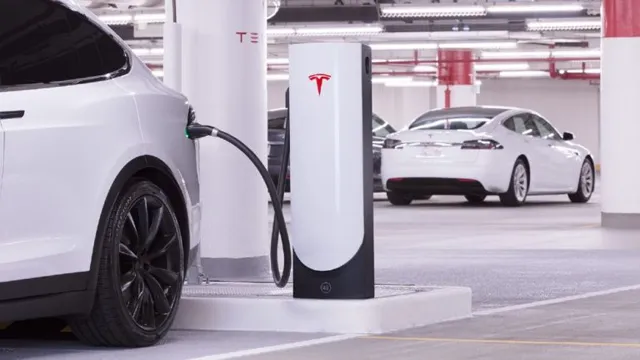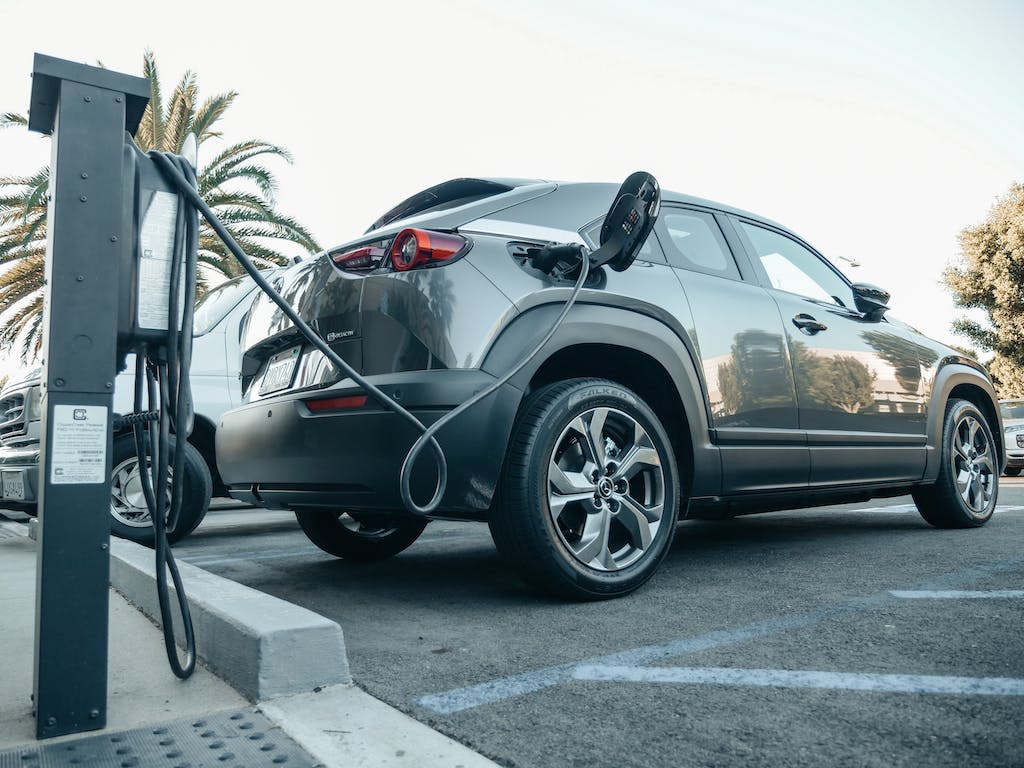Switch to Electric Cars: A Greener, Sustainable, and Better Future for Our Planet
Are you concerned about protecting the environment and reducing your carbon footprint? Are you tired of relying on fossil fuels to power your vehicle? Electric cars may be the solution you’ve been looking for! With advancements in technology and a push towards sustainable transportation, more and more people are considering ditching their gasoline-powered vehicles for electric ones. Electric cars run on rechargeable batteries, which means they don’t produce any harmful emissions. This makes them not only an environmentally-friendly option, but also a cost-effective one in the long run.
By switching to an electric car, you can save money on gas and maintenance costs, while also reducing your impact on the environment. Plus, many countries and cities around the world now offer incentives for purchasing electric vehicles, making it an even more appealing option. But electric cars aren’t just good for the planet and your wallet – they also provide a smooth and quiet driving experience.
With instant torque and no gear changes, electric cars offer an incredibly smooth ride. And because they don’t produce any engine noise, they make for a peaceful and relaxing driving experience. Incorporating an electric car into your life can have a significant impact on the environment and your overall quality of life.
It’s time to consider making the switch and start contributing to a more sustainable future.
Environmental Impact of Gasoline Cars
In a world where environmental concerns are a top priority, it’s important to consider the impact gasoline cars have on our planet. Electric cars are the ultimate solution to mitigating the environmental damage caused by traditional gasoline cars. Gasoline cars release harmful pollutants like carbon monoxide, nitrogen oxides, and particulate matter into the air, which contributes to global climate change and respiratory diseases.
Electric cars, on the other hand, run on clean energy and produce zero emissions, making them far better for the planet. By choosing to drive an electric car, not only are you reducing your carbon footprint, but you’re also helping to improve the air quality for everyone. There’s no doubt that electric cars are the way forward for a cleaner, greener, and healthier planet.
Emissions from Gasoline Cars
Gasoline cars have a significant impact on the environment, both in terms of emissions and resource consumption. The burning of gasoline in cars releases carbon dioxide, a greenhouse gas that contributes to global warming. It also emits various pollutants, such as nitrogen oxides and particulate matter, which can harm human health and the environment.
Furthermore, the production of gasoline requires the extraction and refining of crude oil, which can lead to oil spills and other environmental disasters. Switching to electric cars can help reduce these negative impacts, as they produce no emissions and rely on renewable sources for their power. However, transitioning to electric cars will take time, and in the meantime, it’s vital to reduce our reliance on gasoline and increase our use of public transport, cycling, and walking.
By taking small steps, we can all contribute towards a greener and more sustainable future.

Oil Dependence and Pollution
Gasoline cars have a significant impact on the environment, mainly due to their high dependence on oil as a fuel source. The problem is that the burning of gasoline releases harmful pollutants into the air, such as carbon monoxide, nitrogen oxides, and particulate matter, which contribute to air pollution. This pollution is a major concern as it leads to smog, acid rain, and other adverse health effects.
Moreover, oil extraction and transportation are also significant drivers of environmental damage, leading to oil spills, habitat destruction, and water pollution. To combat these issues, there is a growing push to move away from gasoline-powered vehicles towards cleaner, more sustainable alternatives like electric cars. While this transition may not happen overnight, it is critical to reducing the negative impact of gasoline cars on the environment.
Benefits of Electric Cars
Electric cars are becoming increasingly popular in our drive towards sustainability, and for good reason – they are better for the planet. These cars run on electricity, which means they produce far fewer greenhouse gas emissions than their gas-guzzling counterparts. In fact, studies have shown that electric cars emit up to 60% less carbon dioxide than traditional cars.
This decreased emission is due to the fact that electric cars harness energy from clean sources like solar, wind or hydro power. On top of this, electric cars also have lower energy costs, making them a more affordable option in the long run. Additionally, many countries and cities are offering incentives for the use of electric cars, including tax credits and access to carpool lanes.
Ultimately, the benefits of electric cars extend beyond the individual driver – as more people make the switch, we can work towards a cleaner, greener future for everyone.
Zero Emissions
Electric Cars Electric cars are an eco-friendly alternative to gas-powered vehicles that have numerous benefits for both the environment and drivers. One of the biggest advantages of electric cars is that they produce zero emissions, which means they don’t release harmful gases into the atmosphere. This drastically reduces the amount of pollution produced by transportation, which is a leading cause of global warming and other environmental issues.
Additionally, electric cars don’t require regular oil changes and have lower maintenance costs than traditional cars, meaning they save drivers money over time. They also offer a smoother and quieter ride, and electric cars are often more energy-efficient than gas vehicles, requiring less energy to reach the same distance. Overall, electric cars are a great investment for those looking to reduce their carbon footprint and save money on gas and maintenance costs.
Reduced Energy Consumption
Electric cars have numerous benefits, including reduced energy consumption. By using electric motors instead of internal combustion engines, electric cars consume less energy and produce fewer greenhouse gas emissions. With traditional gasoline engines, a significant amount of energy is lost as heat and friction during the combustion process.
In contrast, electric cars convert more than 75% of the electrical energy from the grid to power the wheels. This efficiency not only saves energy but also lowers costs. With lower operational costs and no need for regular oil changes, electric cars are a cost-effective option in the long run.
Furthermore, electric cars can be charged at home, eliminating the need to visit a gas station. The transition to electric cars can significantly decrease our reliance on fossil fuels and help mitigate climate change.
Less Noise Pollution
Electric cars have several benefits, one of which is a significant reduction in noise pollution. With traditional gasoline-powered vehicles, the sound of engines, exhaust systems, and other mechanical components contribute significantly to the ambient noise level in urban areas. However, electric vehicles operate nearly silently, with minimal noise from their electric motors and other components.
This means that electric cars can help reduce noise pollution in cities and urban areas, providing a quieter and more peaceful environment for residents. Additionally, electric cars could potentially reduce noise-related health issues and improve overall well-being. So, switching to electric cars could not only benefit the environment but also improve the quality of life for people living in noisy areas.
Investing in the Future
Investing in the future means choosing environmentally sustainable practices, which is why electric cars are a great choice. By opting for an electric vehicle, we reduce our carbon footprint, which has significant implications for climate change. In fact, studies show that electric cars are better for the planet since they emit fewer pollutants compared to traditional gasoline cars.
While the initial cost of purchasing an electric vehicle may be relatively high, the cost savings in the long run are significant and worth the investment. Not only do electric cars require less maintenance, but they also offer a smoother and quieter ride. Driving an electric vehicle is not just a personal choice but a collective one that impacts the health of our planet and future generations.
Government Incentives
Government incentives can be a major boost for businesses looking to invest in the future. These incentives come in a variety of forms, such as tax credits or grants, and can help offset the costs of research and development, improving energy efficiency, or expanding operations. By taking advantage of these incentives, businesses can not only save money but also make a positive impact on society.
For example, a renewable energy company that receives a tax credit for installing solar panels can help reduce carbon emissions while also benefiting financially. It’s important to note that government incentives can be highly specific to certain industries or areas, so it’s important to do research to find what options are available for your business. Overall, government incentives can provide valuable support to businesses looking to invest in the future while also promoting social and environmental progress.
Salary Benefits
Salary benefits are a crucial aspect of any job, but they go beyond just monetary compensation. Investing in the future through salary benefits can provide long-term stability and security. While salary raises and bonuses can offer immediate financial gratification, benefits such as health insurance, 401k match, and tuition reimbursement are valuable resources that can enhance one’s financial well-being for years to come.
Additionally, some companies offer stock options or profit-sharing programs that provide the potential for even greater long-term gains. It’s essential to consider all aspects of a job offer, including salary benefits, before accepting to ensure that it aligns with one’s financial goals and objectives. By investing in the future through salary benefits, individuals can take a significant step towards financial stability and prosperity.
Conclusion
In conclusion, the debate around electric cars versus their gas-guzzling counterparts is over. The evidence is clear: electric cars are better for the planet. Not only do they emit fewer greenhouse gases, but they also spark innovation in renewable energy and reduce our dependence on foreign oil.
So, let’s give a charge of support to the electric car movement and drive towards a brighter, cleaner future!”
FAQs
How do electric cars benefit the environment?
Electric cars are better for the planet as they emit fewer greenhouse gases than gas-powered cars.
What kind of impact do electric cars have on air quality?
Electric cars help in reducing air pollution as they produce zero emissions and don’t release harmful pollutants into the air.
How do electric cars compare to gas-powered ones in terms of mileage?
Electric cars are known for their efficient energy usage, which allows them to cover more miles per unit of energy than gas-powered cars.
Are electric cars more expensive than gas-powered ones?
Electric cars may have a higher upfront cost, but they save money in the long run with lower fuel and maintenance costs, making them a more financially feasible option.

